- Learning time
- 30 minutes
- First play time
- 120 minutes
Crown of Emara
Designed by: Benjamin Schwer
The King wants to plan for his successor, and you the players compete to earn his nomination for the crown. How? Mostly, by wandering in circles…
Crown of Emara has two boards: one shows the city, the other the country. Both form a ‘rondel’ – divided into quarters, each quarter represents a stop on the circular path: you begin with a councillor on each board, and instruct them (or one of them) how far to move on every turn. Broadly speaking, your councillors gather resources on the country board (stop on a space, get a resource) and spend them in the city (stop on a space, score points). But that simple nub contains far more nuances than it might initially sound, or even appear.
Each player has a deck of nine action cards. You deal yourself three cards at the start of each round, and on a given turn, play one of them to your player board. The player board dictates how far one councillor can move one of the main boards: one, two, or three spaces. Once a slot on the playerboard is taken, it can’t be used again until the next round. The card itself has an action, and on every turn there are three bonus actions you can take, assuming you can pay for them. You can do these actions in any order you like, and as intimated above, moving around the countryside board means you gather resources at the place you stop: wood, grain, stone or cloth.
When you move your councillor around the city board the four locations are Cathedral, Castle, Market and Construction Site. At the cathedral you can donate resources in order to receive a book and a Favor token. The book can be cashed in elsewhere for points, and likewise the Favor tokens can be spent for little one-off benefits when visiting specific sites. At the Castle you can give resources to the King and get a signet ring, plus cash in a book for points. More on the rings in a moment.
At the market you can change resources into gold (a wild resource) and also cash in books again. At the construction site you simply cash in resources for points directly, albeit the exchange rates for some actions here can and will change during the game. Stone, wood, and bread can all be used here for this.
There are three bonus actions. Each one requires payment, but assuming you can afford it you can do one of each if you choose, paying resources to add a craftsman to the country board: these increase your resource haul and allow you to turn grain into the aforementioned bread. You can buy advisors from the city who give you both a points haul and a one-off or ongoing ability. And finally you can cash in rings and coins to increase your noble rank – and score points.
So nestled amongst the move-along-the-path and turn-stuff-into-points mechanics are numerous decisions: which card to play where, what order you should take the actions, and how the options you take now limit the next one or two turns. You only play 18 cards in the entire game, so every turn takes on a sense of importance. There are also Events in each round that have some kind of effect, either a little bonus or an opportunity to score points. But there’s one extra, critical, consideration as well: points score in two different ways – for buildings, and for citizens. You have a marker on the score-track for each, and after the sixth round, your highest-scoring marker is ignored, and the lowest marker is your score!
The guru's verdict
-
Take That!
Take That!
Zero
-
Fidget Factor!
Fidget Factor!
On a first play, probably rather high. As the iconography becomes more familiar, and the game's various cogs start to come into focus, Crown of Emara will speed up considerably. That said...
-
Brain Burn!
Brain Burn!
...potentially high. Yes, you only have three cards, but each one has a distinct action. Each slot on your player board moves a councillor a certain number of quarters, and there are two councillors to choose from. That's before you even get to what those quarters do, whether you have citizens there, what resources you have at your disposal, and of course what options you're taking away from your turns Y and Z by doing them on X now.
-
Again Again!
Again Again!
If variety is the spice of life, Crown of Emara, despite not appearing to be about anything, is pretty salty.

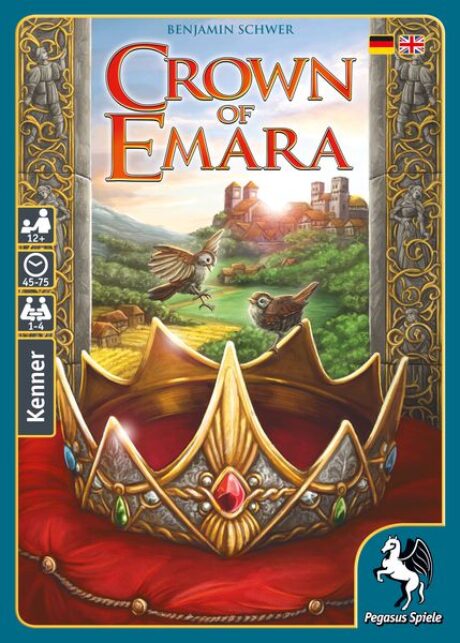

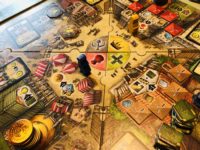

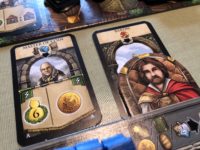



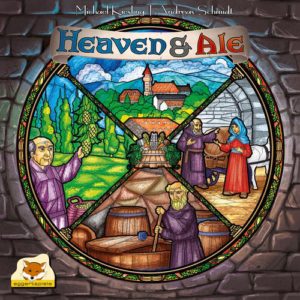
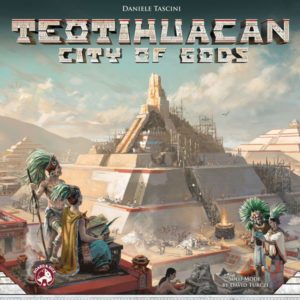
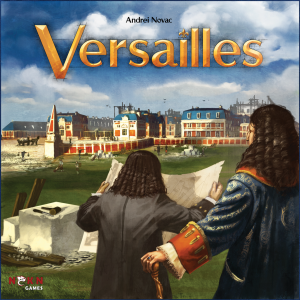
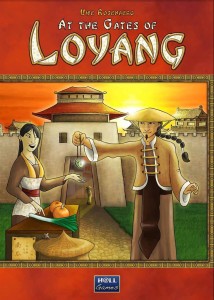
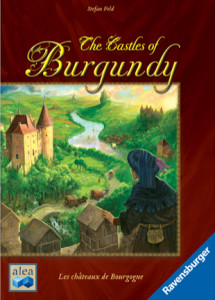
Sam says
One thing you can never accuse 'euro games' (a blanket term for games with, loosely speaking, low player interaction, minimal narrative and a high puzzle element) of is passing up the opportunity for a forgettable theme. Oftentimes you are traders in the Mediterranean, merchants in Carthage, politicians in Italy... with Crown of Emara, the location itself is entirely invented so that that even the thin veneer of history isn't present . But hey, as a puzzle game goes, it's actually rather good; packing a considerable amount of thought into a hand of three cards in each round. And while it's not something that particularly excites me to come back for more, I can see that for gamers who like to puzzle out the optimal moves, and chain these different moves together into something more than random chance and hope - Emara offers a lot.